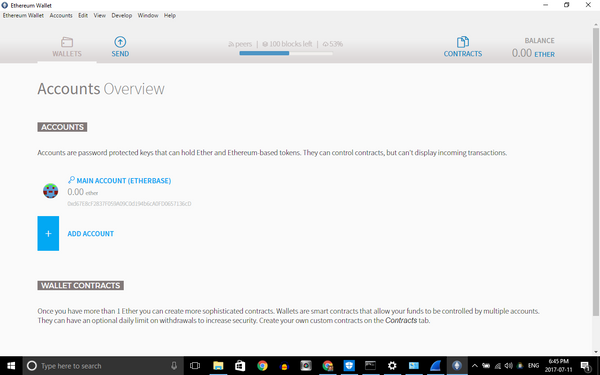
Hey, you made it! Better late than never, lol. If you're just getting started in the wide world of crypto, you probably feel like you're late to the game. You, sir/madam, are correct. However, you're not too late. Why? Because this is not an asset bubble, it's a revolution. The way we transact with each other will forever be changed by cryptoassets/blockchain, and we're still just getting started.
Some of you don't understand bitcoin, because you don't really understand money. You think money is "real." If you've ever said, "but bitcoin isn't backed by anything," then we're talking about you. It's ok, most people have no idea how our current monetary system works. We could go on and on about this, but that's probably not why you're here. However, here's a good article you can read later that goes more in depth on that subject. And if you haven't seen any of the Zeitgeist documentaries, you should definitely commune with Netflix or Kodi and handle that asap.
You should also get up to speed on the basics of what bitcoin is and how it works and how all these other altcoins relate to it. Think of it like bitcoin being like netscape or AOL, and now we're entering the age of Google with these other altcoins. For a thorough understand of all that, READ THIS.
Now, on to why you're really here. You've heard of all these people making crazy returns on cryptos and you want to get in on the action. First, we make no guarantees. The reason people are making big returns is because they are taking big risks. This is a highly volatile market and you can lose a lot of money very quickly, especially if you don't know what you're doing. Our job is to help you educate yourself and make better investment decisions, not guarantee you'll become a bitcoin millionaire! So let's get started
Setting up your wallets
First thing's first. We'll get into how to buy coins in the next section, but the best way to get coins is actually to earn them (via mining - we'll get into that later), get paid with them in exchange for services or goods (e.g. selling your car or graphic design services for bitcoin), or maybe you just have a really nice friend that wants to send you coins. But before you do any of that, you'll need a wallet. The exchanges where you buy your coins will usually come with wallets as well, but we're going to go over non-exchange wallets in this lesson.
Desktop wallets

Most coins usually have a website where you can download a wallet to your computer. With some newer coins, this is actually the only option you have. This generally requires a laptop with enough hard drive space available and an internet connection since you'll need to download the coin's entire blockchain, which can be a very slow process even if you have good internet speeds.
Generally, the process involves downloading the wallet program and installing it on your computer, then you open the wallet and wait for it to sync the blockchain, which is just a fancy way of saying that it needs to download all the transactions ever completed with that particular coin, like a huge accounting journal.
Obviously, this is not a very convenient or user friendly method to store coins, but it is necessary for some coins, especially if you want to run a node or masternode (which helps confirm transactions over the network, thus adding to the resilience and stability of the system and sometimes allowing you to earn transaction fees).
Here are some instructions to download desktop wallets for various popular coins:
Mobile Wallets
Mobile wallets are the most convenient and easy to set up and allow you immediate access to your coins. They're exactly what they sound like, wallets on your mobile device. Usually it just involves downloading an app, writing down a backup seed/code, and setting up 2-factor authentication. This is the best option for everyday use if you're frequently sending/receiving coins. Still not the best options for storing coins as a long-term investment. Some of the more popular wallets that have been around a while are:
Hardware Wallets
The next level of security, and better for longer-term storage, are hardware wallets. These are physical devices like the Ledger Nano S and Trezor that connect to your computer and require your physical presence and a pin/passcode to send your coins. If you don't plan on actively trading your coins and are using them as long-term investments, this is your best bet.
These devices are extremely secure and prevent anyone from getting access to your coins without having access to the device. Also, similar to the mobile wallet, it allows you to set up a backup code to be able to restore your wallet if you lose the device. Obviously, it's very import to store the device and backup codes in a secure place, and preferably not both in the same place (store the device in a different place than the backup codes).
In the next lesson, we'll go over how to set up your exchange accounts and buy coins.
If you appreciate this information, buy a BlacKrypto shirt.
